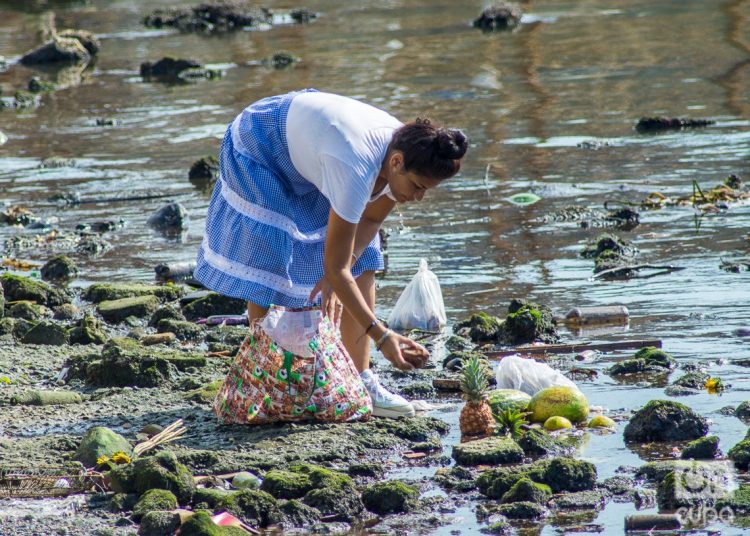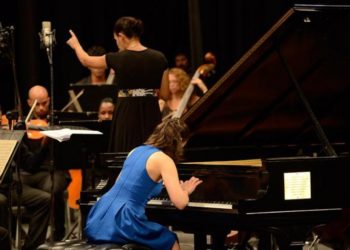Juan Mesa (Güines, 1953) and I were part of a troop of writers and artists in the last century that toured the Sierra Maestra for a month. According to Martí, “climbing hills unites men.” In our case, walking and retracing narrow, steep and risky gorges made the statement come true.
Our chance encounters are a party, as a current of mutual empathy continues to unite us. Juanito is a man of razor-sharp humor, with a great capacity for observation of what happens in our lives. For a long time I have been setting up a friendly siege for him to allow himself to be interviewed, but he is “elusive, like a fish of darkness.” Until finally! OnCuba finds him near the western Mediterranean. Perhaps out of homesickness for the distant country of origin or out of fatigue — who knows — this time he agreed to the dialogue.
Juanito is an anthropologist and Ifá priest. As a guest professor, he has given courses and lectures at several universities in Cuba, Canada, Spain and the United States. Among his most notable publications are Dimensión cultural del desarrollo turístico (Havana, 1992), The Religious System of Ocha-Ifá (Austin, 2007) and Las religiones caribeñas de ascendencia africana (Madrid, 2014).
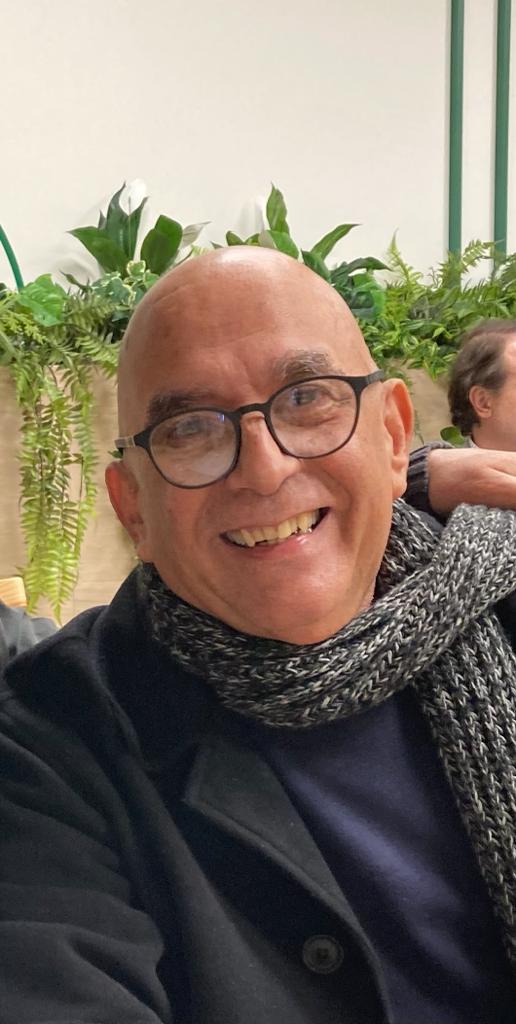
I knew you last century as a historian, promoter and official of an important cultural institution, but not as a babalawo. What was your path to becoming ordained within the Ocha-Ifá religious complex? Is it part of a family tradition?
My path to encountering religions of African descent never went through the family sphere.
Like most of my generation, I was baptized in the Roman Catholic Apostolic Church at birth. My first studies were carried out at a Presbyterian-oriented school: the Kate Plummer Brian Memorial, in the city of Güines, until the nationalization of education in 1961. Later, I directed my steps to the Social Sciences, namely: History and, definitely, to Theological Anthropology. Also Cultural Promotion.
The study of Cuban traditions and the approach to the forms of thought that have influenced in some way what we are were the paths that I took towards the Ifá priesthood.
In the mid-1980s, life took me to Africa for more than two years, where a more conscious and closer link was created with traditional African thought.
The gradual identification with that model of thought — which is expressed based on the diversity provided by the regional specificities of the sub-Saharan world — was key in making that decision.
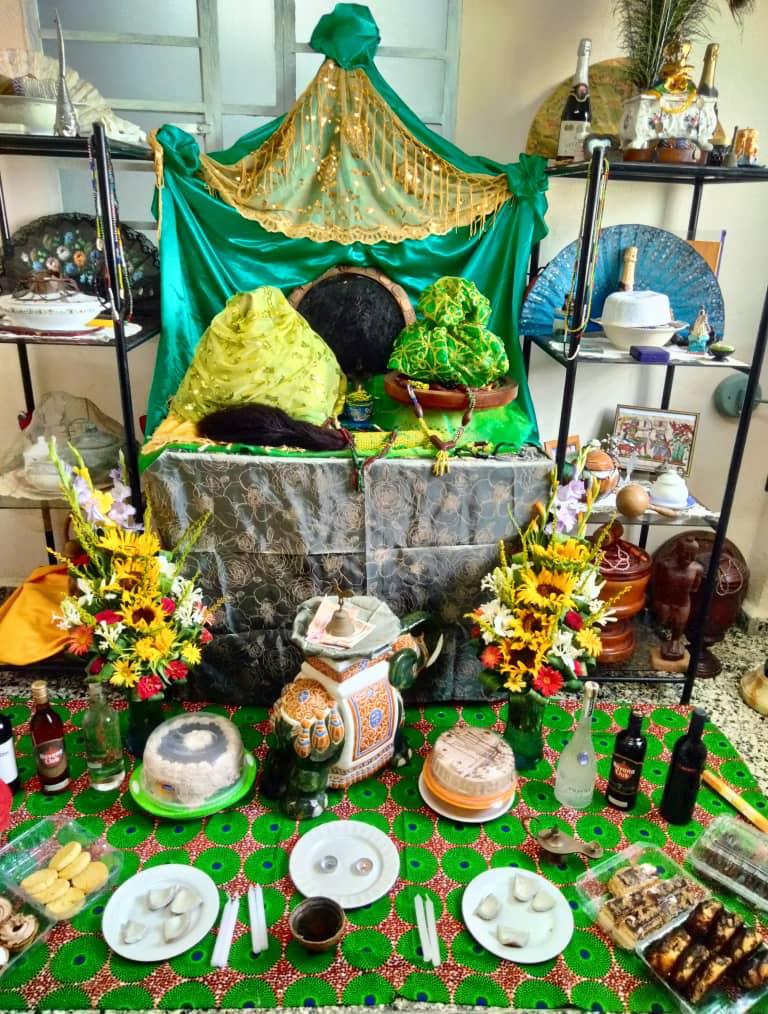
What is your name within the religion and what does it mean?
My name is Fatumbi (born again by the grace of Ifá), although in Cuba we usually identify ourselves by the odun that Orula assigned us to carry out our mission.
From what I know, in recent times you have combined your religious condition with work in a state institution. How was that experience? Did you have difficulties harmonizing both facets of your life? Which of the two was more demanding?
I do not consider that there was a contradiction between the exercise of priesthood and having carried out teaching, research and the design and organization of cultural processes. I am not the first nor the last priest who performs several functions at the same time. It is true that there is no room for boredom; as is known, the babalawo “always has something to do.” For me, this practice has contributed to better organizing time, perfecting work and study discipline, and, above all, to exercising humility, which is one of the pillars of good character.
I cannot forget that I have in my favor sharing my life with Ana Ofelia who, by the way, is iyalorisa and apetbí iyafá. She also had responsibilities at the head of cultural institutions, which greatly contributed to the flow of harmony in the Temple House and in the complementation of ritual functions.
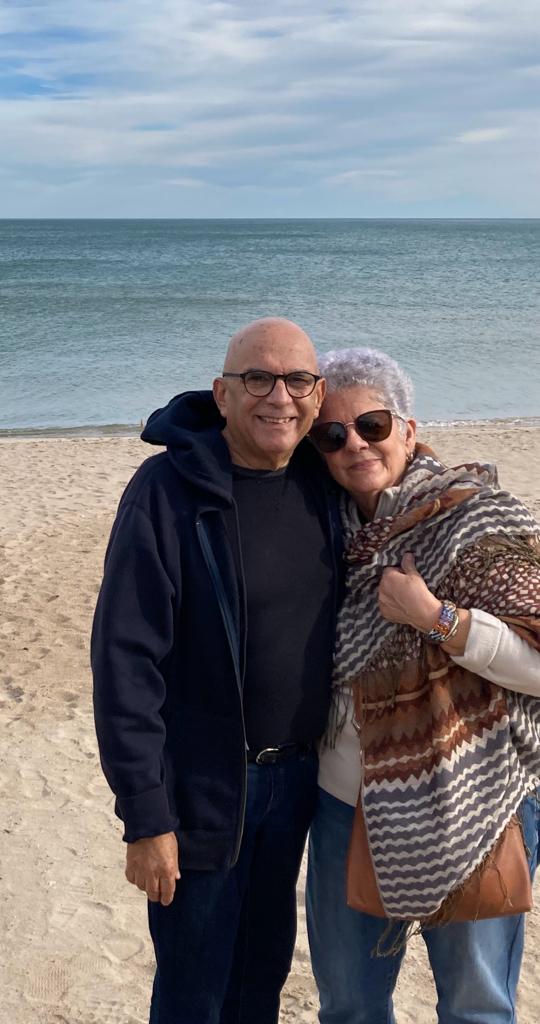
Religious practice requires research and study; that rigor must be part of everyday life. In me it corresponds to a vocational inclination, therefore, it is a pleasure. My research and teaching work is closely linked to aspects of religion, so the enjoyment is double. In that sense, as the poet said: “Don’t blame anyone for my death.”
There is a belief that the Regla de Ocha-Ifá has, for the practitioner, a utilitarian character, that as long as you “keep happy” the orisha who governs you, you can do anything, even transgress legality and morality. Is that so?
This tendency to try to disqualify what comes from Africa — in addition to the racist stench that it exudes — demonstrates a profound ignorance of the knowledge of the principles contained in the doctrinal corpus of the Ocha-Ifá Religious Complex. It happens like in the planispheres with which we were once taught geography, where the true dimension of the African continent is treacherously ignored, in which the territories of the United States, China, India, Japan and Western Europe could easily fit together.
The very terminology that is used for such purposes, such as “syncretic cults,” “magical-religious practices,” “Santería” and other “pearls” of that kind, intend to describe our religion as a set of utilitarian practices lacking content: witchcraft, fetishism, animism or white or black magic, according to what they believe they observe, which leads them to confuse their observations with reality and their versions of what they observed with the truth.
Our sacred text (Igbi bogbo fá), contains an ethical code that is worth consulting, even by those who are not religious. I am not talking only about the so-called “sixteen commandments” contained in the odun Ika Fun. The religious principles that are throughout the entire text, in the 256 odun, require honesty, always speaking the truth, understanding the truth as “the word that is not corrupted”; do good and do it well, remember that “a clean heart is worth more than all the gold in the world.”
It promotes character modeling, living in harmony with oneself, with others and with nature, working on self-improvement to achieve iwa pele (good character), iwa tawa (harmonious character) and iwa l’ayé (natural character), until reaching eniyán gidí or virtuous behavior. The social ideal would be marked by a state of general well-being.

The opportunity is offered for rectification of the path to those who made mistakes, the practice of piety and humility is advocated. It educates in patience and perseverance; it exhorts to differentiate the mud from the sand, to be supportive, to abandon pride, to cultivate wisdom, to recognize women in all their dimensions and respect them, and to never confuse value with price.
In essence, the behavior of the babalawo must be characterized by honesty, patience, good sense, resilience, perseverance and a high dose of humility.
Rituality is based on sacrifice as a way to direct effort towards a better life and a good death. The link with the natural, selective and conscious energies, that is, with the orishas1 depends on the alignment of the consciousness and the individual’s behavior with the ashé that the divinities emit.
In short, the best way to “keep” the orishas happy is to follow a line of conduct that makes you a better person.

During the so-called Special Period, rapid growth was observed in religious congregations of different creeds. For the first time I saw the emergence of a certain commercial character among some babalawos.
During the so-called Special Period, some tendencies towards mercantilism became more evident, which always existed and always were and continue to be a minority, but in difficult times the wretch tends to come out of the closet. Unscrupulous elements have always existed within and outside the realm of religions of African descent.
Profiting from principles, not keeping promises, deliberately lying, abusing the trust that someone placed in your position, using demagoguery as a tool of persuasion, and altering fees, is not going to earn you the blessing of Olodumare, that’s for sure.
When someone tells me that he felt cheated or deceived by a supposed babalawo, I answer: get angry with people, not with the religion. Take it as a lesson and keep your course.
Do the practitioners of the Regla de Ocha-Ifá, now that these popular religions are not officially frowned upon, continue to increase in number? I suppose there are no statistics to say one thing or the other, but I appeal to your powers of observation.
Since the Special Period, passing through others ― which have not been officially baptized ― and until today, I have also noticed that the interest in approaching our religion continues, despite the high cost of life and how difficult it becomes every day to access the elements used in the rituals. I certainly don’t have statistics, but what I observe is the growing and notable vitality of this religious denomination.
By the way, my friend, what are popular religions? Are there any unpopular ones?
I had the opportunity to cover John Paul II’s visit to Cuba as a journalist. On that occasion, it caught my attention that the Pope met with the leaders of all religious creeds, except with the babalawos and taita-ngangas. Doesn’t the Catholic Church consider them a religion?
When His Holiness John Paul II visited Cuba, I believe that, in fact, he did not meet with representatives of religions of African descent. I don’t know why. But reality is stubborn and exists independently of anyone’s desires or considerations, no matter how important or prestigious they may be. In my religion we do not discriminate, we even serve any human being who requires our services, without asking if he has another faith, or if he is an atheist, what his political creed is, or his sexual orientation.
The hierarchy, in our religion, does not have a single figure that summarizes and displays all the representativeness of our religious community, something that should always be distributed. Acceptance or not by the centers of power is something that facilitates or hinders the normal development of a task, but we have a notable experience as a culture of resistance. For centuries we have been dealing with discrimination, contempt, repression and disqualifications of all kinds. This religion, despite this, maintains an enviable vitality. Patience is virtue, resilience is victory.
Oh, I forgot one detail! After his work in Cuba, the Holy Father visited Nigeria, where he also carried out his valuable pastoral work. Perhaps he went for some additional information to the “headquarters” that he did not recognize here.
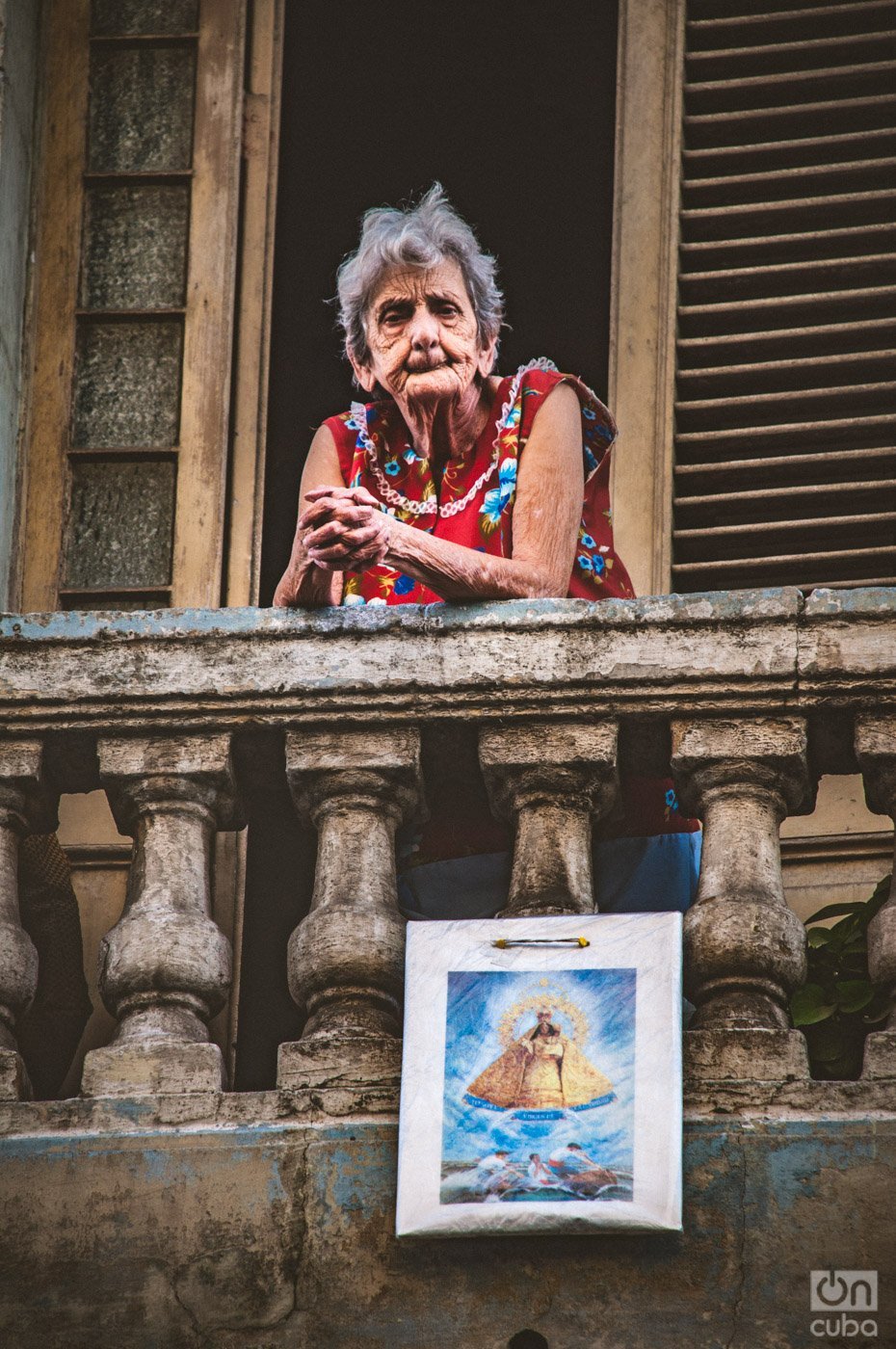
Is it true that for various rites of the Regla de Ocha-Ifá the practitioner has to be baptized by the Catholic Church?
In many Temple Houses, there is a tradition of requiring Christian baptism as a prior step to the initiation process. This detail, which is not minor, has its origins in the long and painful process of adaptation and forced transculturation that African religions had to go through upon their arrival to our land. Everything had to be masked as Catholicism to survive, the image of the orishas had to be “whitened.” Even in the 20th century, temple houses almost always decorated their rooms — which was what was visible from the street — with an altar full of Catholic saints, to whom tribute was paid, while they were identified in some way with the orishas themselves — who were placed in an interior room, to avoid the sight of strangers —, hence the term “Santería” was born, which at first had a derogatory character.
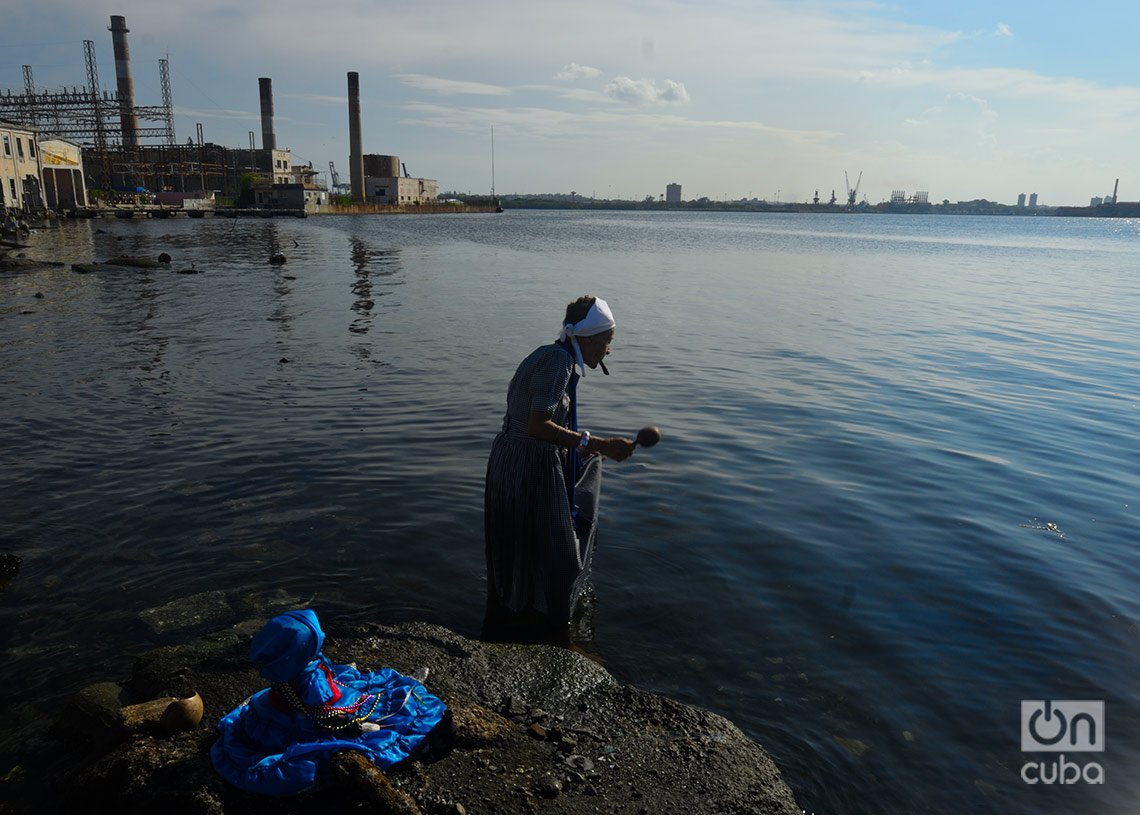
In your resume I see that you have been invited to several universities abroad to give lectures. Is there interest in our universities to teach Caribbean religions of African descent at an academic level?
I perceive a slow but growing interest in the academic and cultural institutions with which I have worked outside of Cuba, due to the African imprint in America. From my modest point of view, I believe that the study of traditional African thought — not to mention religions — continues to be a pending subject in the Cuban academic field. It is difficult for me to understand that the dance, musical, performative and visual manifestations of African origin are studied and not the thought that gave them life. It is contradictory, and I worry that something that is a substantial part of our heritage is not part of our collective consciousness. I have reiterated this in many forums. It seems that we will have to continue persevering.
Now you are out of Cuba. Are you aware of the results of the Letter of the Year ceremony? Can you comment for our readers on the most important aspects to observe during 2024?
As I am temporarily out of Cuba, I have taken some time to find out about the Letters of the Year that are traditionally determined by the Commission named after Miguel Febles and by the religious institution Yoruba Cultural Association of Cuba (although there are Temple Houses that determine their own letter, and places like Palmira, in Cienfuegos, where this tradition is one of the oldest in the country).
This has been a particularly valuable instrument to determine the features of the life cycle that we will have to live in that new period of time. Usually, they do not coincide, and this is due to many factors, such as the exact times at which the ceremonies began, the liturgical tendency used in each ritual and other contexts that may influence the premises where they are celebrated. The approach and wording of the document that is made public by each organizing commission is very valuable, since the group of indications, the better they reflect the word of Ifá, will provide greater precision to the forecast and the guide it intends to be. I admit that I would like both entities to issue a single prediction, something that has already been experienced, but that does not seem to have prospered over time. Traditionally, I follow the MF Commission, as I have preferred not to affiliate with any religious or other institution, although I greatly respect the work they do. I always adapt the ebbó (sacrifice) and the discourse to the environment of my religious community, after consulting with Orula. I remind you that the Letter of the Year is a forecast, accompanied by recommendations to avoid or minimize the difficulties that may arise, for which the Ifá oracle is consulted.
As both entities have explained their predictions clearly, I will briefly comment on some aspects that seem of interest to me.
The Yoruba Cultural Association of Cuba determined that the odun Irete Suká will rule in 2024, with iré (well-being) of stability through Azojano (Babalú Ayé). This odun emerges from the conjunction of two primary matrices that are Irete and Otura, both of which respond to the description of evolutionary life cycles. Basically, on the metaphysical level, Irete is determination and orientation towards good fortune, movement towards one’s transformation, if one tends to iré. When the tendency is towards osogbo (harm, damage, negativity), one moves towards stubbornness, intransigence and arrogance.
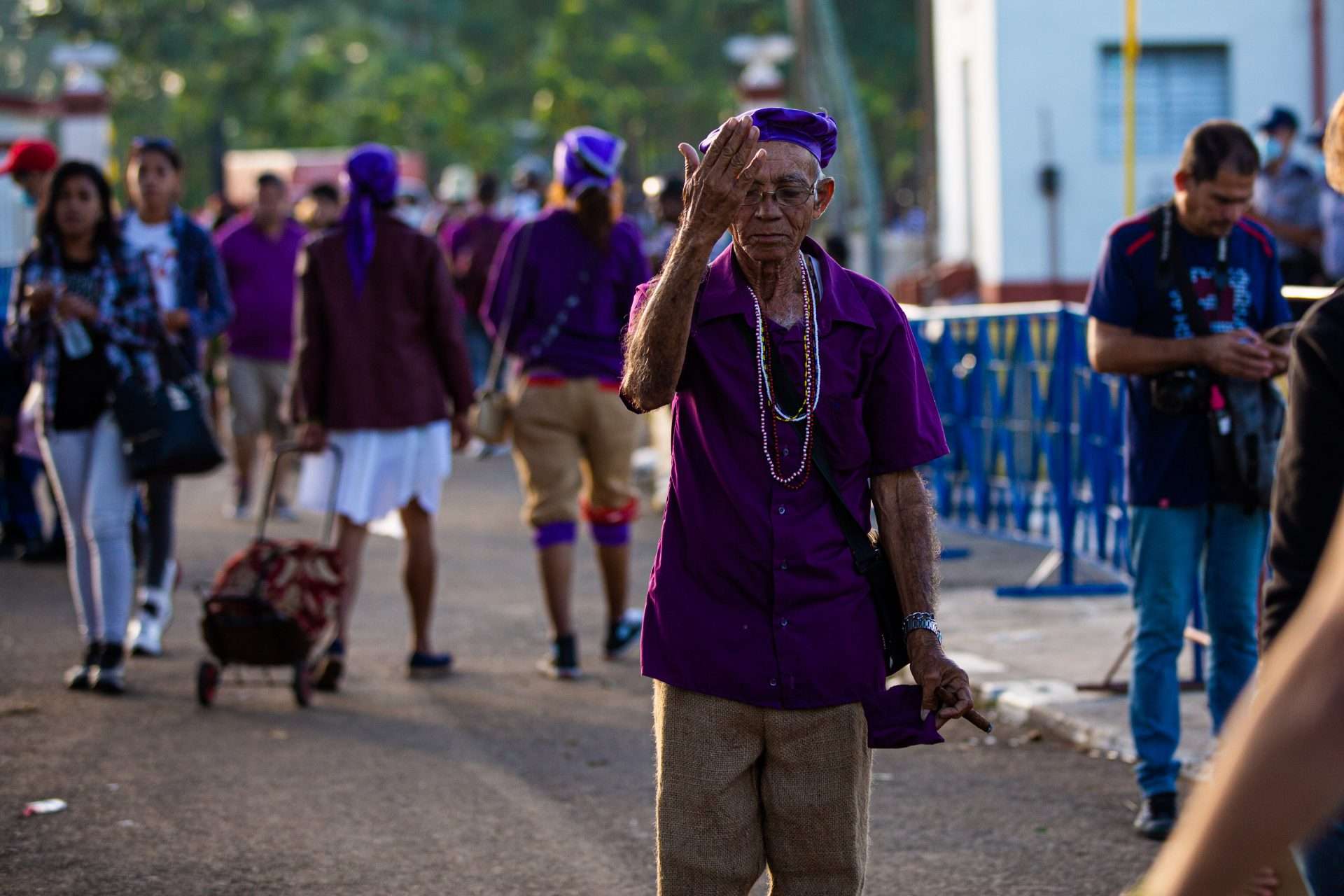
For its part, the Otura matrix transports to the origins of the mystical vision, to the alignment of consciousness with the founding times and with The Creator. When reading tends towards osogbo, then confusion, insurmountable doubts and the wrong path will prevail.
The combination of the characteristics of both principles makes up Irete Suká. Therefore, one of the dangers that it warns of is that the king’s crown is placed on the head of a child, the lack of rigor in the analyses before making decisions and the dangers that arise when the verifications, zeal and vigilance become an obsession, and the conclusions of the analyses are taken to extremes. It also warns of the erroneous nature of a path that threatens the stability, unity and good development of the family, and of the importance of educating new generations in a harmonious environment.
The Miguel Febles Organizing Commission of the Letter of the Year concluded its diagnosis with the odun Iroso Umbo and a prediction tending to the osogbo with danger of diseases and tragedies. The matrices of this odun are Iroso and Ogbe. The first responds to the description of evolutionary life cycles and the second is within those that locate these cycles in time and space. Iroso represents ancestral legacy, lineage, family guidance and genetic inheritance. When osogbo prevails, congenital malformations, degradation and denial of ancestral values will appear. Meanwhile, Ogbe represents light, life, expansion and alignment with destiny; if one tends to osogbo, it translates into arrogance, high-handedness and departure from good character. Therefore, the letter warns of a possible deterioration in the level and conditions of life, especially for vulnerable people, of the need to care for ancestors with discipline and rigor, to be alert for the appearance of acute respiratory diseases, to control of blood glucose levels, of reinforcing hygienic and sanitary measures, of the danger of collapses and crushings and of the importance of sacrifice and perseverance to achieve goals in life (“Sacrifice will be rewarded”). According to this letter, the babalawo should not receive fees for the ebbó that he performs.

How big is your religious family? Do you have a message for them?
My religious family is a large corporation to which my biological and spiritual ancestors belong, my elders, my teachers, my companion, my children, my grandchildren, my brothers — blood or not —, the more than two hundred “godchildren” of whom I deal with regularly and who already have some degree of initiation, those who join it, those who abandon it and those who are yet to be born, with whom I will share my energy when I move to the spiritual dimension of existence. My message to them is and will always be the bearer of all the love that I can fit in my chest.
***
Two babalawo friends sent their greetings to OnCuba readers for the coming year.
Axel Presas (Awó ni Orúnmila Otura Meyi):
I wish everyone to enjoy good health and prosperity in 2024. It is very important to understand that good human nature leads us to achieve better stability in our lives. May we all enjoy the prosperity we desire. Good prizes take time, but sooner or later they arrive. My best wishes to everyone in this new year. Igboru Igboya!
Gerardo Frómeta Hernández (Ifátóóyangàn):
My wish is that 2024 be a good year. For this to happen, Ifá followers must offer ebbó and wash their left leg in the river; the details of the ritual are the responsibility of the babalawos. It is imperative that you do not send emissaries to do your important things, you must do them personally.
May the odù Esekan Ola bring you all the blessings. Aború aboye.
________________________________________
Note:
1 As is common in the treatment of these topics, the phonetic transcription of terms belonging to the Yoruba language may differ slightly from that used by other experts on the subject. Here we respect the spelling used by our interviewee and the two babalawos who add their greetings at the end of the text.

